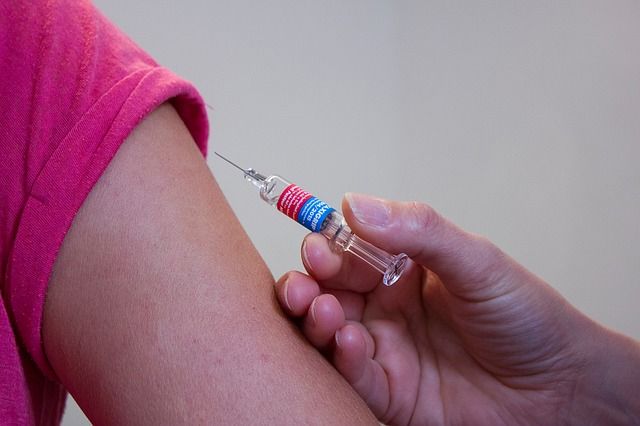A unanimous Parliament has agreed to expand the vaccination program for groups particularly vulnerable to the ongoing coronavirus crisis.
The group includes the elderly and health personnel, and it is hoped the expansion will reduce the number of the country’s high-risk infections.
The new vaccination package includes:
– a free vaccination against pneumococci for everyone over the age of 65 and to vulnerable groups under 65.
– a free flu vaccination for health workers and vulnerable groups
– a continuation of free whooping cough vaccinations for pregnant women
The goal is to reach a 75 percent sign-up rate for the pneumococci and flu vaccinations.
The first vaccines, which will be given to the vulnerable groups by their own general practitioners, will be ready sometime in April.
Dire economic outlook
According to a new report from the National Bank, 600,000 private sector jobs are directly or indirectly affected by the coronavirus pandemic.
According to Danmarks Statistik, there are 2 million jobs in Denmark’s private sector, so almost a third are impacted.
The bank also estimated that Denmark’s economy will see negative growth of between 3 and 10 percent due to the crisis.
Truckers keep on trucking
While car traffic in Denmark has declined by 50 percent during the coronavirus lockdown, the trucking industry continues to plough ahead.
According to the latest figures from the Vejdirektoratet road authority, the trucking industry has continued unaffected so far.
The reason is most likely down to shops and supermarkets still requiring products and Denmark’s border restrictions not encompassing trucks, stated Vejdirektoratet.
Far fewer flights over Denmark
According to new figures from the Naviair aviation control operator, the number of flights passing through Danish airspace has declined significantly recently.
The figures revealed there were 83 percent fewer flights through Danish skies last week, compared to the same week in 2019.
Many airlines across the world have considerably reduced flights due to the coronavirus situation.
Government postpones annual reports
The government has ruled that companies in Denmark can delay handing in their annual reports for another three months due to the crisis.
Some 200,000 companies were due to hand in annual reports on May 31 at the latest.
The move was approved at the behest of Parliament and the Danish business sector.
Homeless get help
A unanimous Parliament has agreed to an aid package to assist the homeless community in Denmark getting through the pandemic.
To this end, the government has set aside 5.5 million kroner in emergency support for the homeless.
The funds are earmarked for nine organisations working in the homeless arena and spent as they see fit.
Hand sanitiser boost for CPH
The Capital Region has received almost 60,000 bottles of hand santisier from Borup Kemi.
From the time that contact was made between the two parties, Borup Kemi took just 11 days to produce the shipment, and the State Serum Insititute was quick to approve the associated permits.
The Captial Region has already ordered an additional 60,000 bottles through Borup Kemi.
Media axe April 1 pranks
A number of high-profile media in Denmark have decided against running April Fool’s Day stories this year because of the coronavirus crisis.
Berlingske, TV2, BT and Jyllands-Posten have all axed the jokes this year because of the seriousness of the pandemic.
Meanwhile, the likes of Ekstra Bladet contended that it has written a hoax story because people need something to smile about.
Many health workers infected
According to the Capital Region, 114 health workers in the Copenhagen area have contracted the coronavirus.
The number only reflects confirmed cases as of March 29 and the individuals primarily work at hospitals.
There were 1,214 confirmed cases in the Copenhagen area on March 29, so health workers accounted for almost 10 percent of the total cases.
Fruit and veg shortage?
According to Catharina Sørensen, the deputy head of the think-tank Europa, the EU could experience a shortage of fruit and vegetables in the near future.
Sørensen contended that seasonal workers who do much of the harvesting will be impacted by the border restrictions many European countries have established.
Sørensen argued that the EU would have to co-ordinate efforts in order to prevent this coronavirus side-effect from happening.
A fine Wembley gesture
With all football cancelled due to the crisis, Denmark’s friendly with England at Wembley yesterday was among the thousands of games that did not take place.
But in a nice gesture, an ode to Denmark was written on the information board at Wembley.
‘Sammen hver for sig’ (‘Together, while apart’), which has become Denmark’s slogan during the coronavirus struggle, was written on the board at Wembley.















